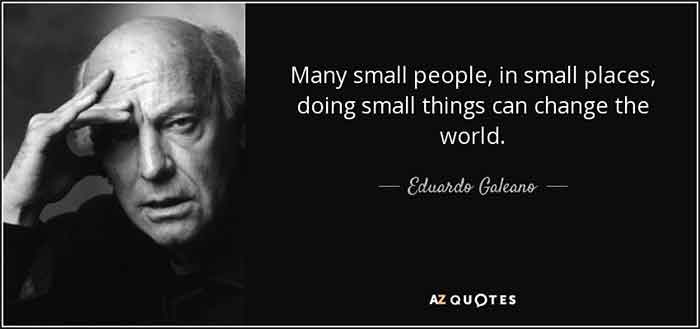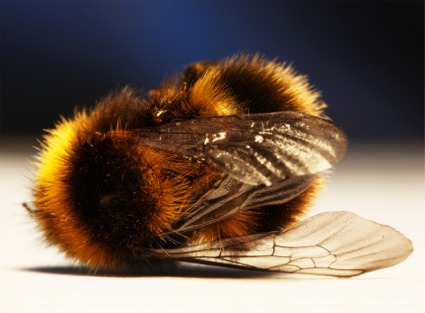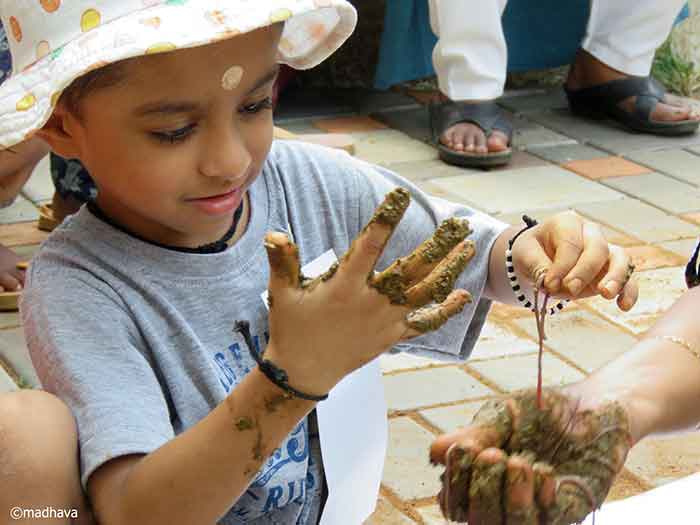
“Ahh, you know Aai what happened today”? I entered Home with excitement, threw my college bag and entered the kitchen. Mother was preparing Dinner. “Don’t you dare to come into the kitchen with shoes you idiot, go remove them”. Aai shouted at me. “Ooops, sorry, sorry”. I was really guilty as shoes were dirty due to rain and mud, moreover mother has given certain rules which are supposed to be followed by papa and me without any question.
“You look so excited, tell me what happened”?. A voice came. It was Father, he was watching me while I was removing shoes. Life was so good then. V.G. Vaze College of Arts, Science and Commerce turned out to be the ‘perfect’ place I was longing for all my life as a poor school kid. After spending more than a decade in a useless institution called School I entered a place where I could at least breathe and do my stuff in my own way minding my own business without anybody’s ‘faaltuu’ interference. The moment I left school while taking a one final gaze at that gray, dull, lifeless and equally useless ghetto that forced me to willingly enter and find comfort in a self-created ‘Solitary Confinement’, I realized that neither the school could ever understood me, nor was I able to understand the school.
The newly found liberty in college gave wings to my endless imagination and energy. That was the time I started doing crazy stuffs. 16 years old Boy is always full of dangerous possibilities. Climbing mountains to late night outings; sports, dancing; singing; writing; mischiefs, did everything that a newly freed ‘Bombay Brat’ can possibly do.
“Wait Papa I will tell you”, I said sitting beside him on the couch. I was about to tell him a story of one of the greatest adventures I have ever done in my life. “Hmm, I am listening, go on”. He said looking deep in my eyes. “Well, today I travelled in Train without Ticket. You know, I went without a ticket and came back without a ticket. I walked straight under the nose of TC twice. He could not catch me. I saved 10 Rupees.” Some strange kind of pride was oozing out from my words. I was laughing. Father kept looking at me. I was expecting laughter from him, because throughout my narration I was thinking I did something strange and funny but he did not laugh. His small eyes became smaller. Lips pursed. His deep gaze turned cold and I realized something is not really right. “You escaped under the nose of TC twice”? Cold words came. “So you travelled without a ticket”? A thunderbolt struck. Finally I realized that Father did not find humor or achievement in my puppy adventure. I immediately stood up from the couch with my head facing down- partially in shame, mostly in fear. “Immoral and illegal behavior has no place in this house, do you understand young man”? “What you think was funny, was not funny at all, YOU have committed a crime Boy, you have cheated the Government”. OMG, me? Cheated the Government? I could not believe what Father was saying. All my enthusiasm, humor, laughter disappeared and guilt set in. Moreover, Mother was also seeing all “tamasha” with angry faces.
“The character of Man is his real asset. Once that is gone, everything is gone. Character is protected in the shell called ‘morality’. A Father in him immediately transformed into a Teacher. “It doesn’t matter whether you are just a Boy, a working fellow, a Top Officer, an IAS, a Politician, A Prime Minister or a President. You must live a moral life. There is no escape. Wealth, Lust and worldly attractions cannot ruin your soul if it is already well guarded by the ‘wisdom’.” He continued. “When during the raid on Kalyan, the Bijapur Subhedar’s young and beautiful daughter-in-law was arrested and offered at the feet of King Shivaji Maharaj, he didn’t accept such a present, instead on her arrival he exclaimed, “OH, how nice it would have been if my MOTHER were as fair as you are ! I wish my MOTHER was as beautiful as you.” I was stunned by the way the conversation was taking twists and turns. “So, you have to understand, whether it be a question of a Woman, Wealth, Power or desire to save TEN Rupees, it is morality and purity of your thoughts, if put to action-their Legal & Moral consequences, should guide your behavior in personal and public life till the end”. With these words he got up, went to his study and closed the door behind him. This incident left a big impact on my character.
As I was taking a sip of Hot Soup, I lost in the clouds of thoughts- a deep nostalgia indeed!
Loud ring of Mobile dragged me back from past to the present. It was a call from an old friend from Delhi practicing at Delhi High Court. We discussed a bit about a couple of ‘legal matters’, she took my suggestions and hung up the phone. “Lawyer never dies. Once a Lawyer, always a Lawyer.” I thought to myself. “They don’t actually care whether I am practicing or not, or in which part of the world I am nestling or whether I am interested in talking or not, they know this ‘silent’, ‘carefree’ Man will always be there. Right O !”
As I kept my ancient Mobile on a table thoughts on human ethics & values again started to revolve in mind. What role should Morality play in the overall life of a Public Servant? Suddenly a question hit, an old one though; asked by one of the students (was it Hipito or Hathenlivo?) from the first batch of Political Science Honours I taught at Tetso. Morality and Public service goes hand in hand isn’t it? Government servants or even the so called MPs, MLAs, MLCs and Ministers are subjected to this unwritten law of service that they must perform for the people. Moral values keep us human, in fact a more useful human I must say.
Study of Asokan Edicts introduces us to the thoughts of Emperor Asoka on private and public ethics. In his “Royal Writs” which carefully engraved on stone tablets, he gave instructions as to the ideal moral behavior expected from his subjects, Royal Civil & Military officers as well as other employees and the EMPEROR himself in their private and public life. Emperor Asoka was also fondly called as “Dhammashoka” (Asoka the Righteous) by the people of his time because of his moral governance and unblemished personal character.
Asoka is also given probably the oldest version of Social contract theory specifying that rulers and the ruled are owed to each other. The administrative philosophy of Asoka is still relevant in today’s democratic structure of our country where the government is elected by citizen rules. The democracies in the world have been standing tall and strong deep in the ashes of Monarchies and autocracies however, it seems neither the citizens are able to understand the length, breadth and depth of Democracy, nor their elected representatives and also the so called ‘Civil Servants’.
IAS, IPS, IFS, Group A & B as well as State Civil Service Officers are the servants of the citizens of this country-this is what Constitutional morality teaches us, however, the real world experience unfolds certain bitter sets of realities that questions the very foundation of the relationship between Citizens and the State. Moral behavior is a norm for Government Officials. I think the fundamental principle in a democracy is that all persons holding authority derive it from the people; in other words, all public functionaries are trustees of the people. With the expansion of the role of government, public functionaries exercise considerable influence over the lives of people. The trusteeship relationship between the public and the officials requires that the authority entrusted to the officials be exercised in the best interest of the people or in ‘Public Interest’. Now the question is, what does YOUR personal experience tell you about this so-called “trusteeship” relationship that you are supposed to enjoy with the Government officials? As a citizen of a Democratic country blessed with a Constitutional democracy you must think over it.
How often do you go to meet the DC of your district? How many times have you met the SP? Have you met heads of various departments? For e.g. Rural Development? Or Home? Or Food & Civil Supplies? Health? Education? NO? WHY? Do you think you have no work with them? Or do you feel some sort of fear or inferiority complex to meet Servants of the Public? While speaking on morality in Public Service, we must acknowledge the ‘Ghosts of Babudom’ that still haunts our people in India even in 21st century in 2022 where we are living in the continuous experience of the bombardment of information and knowledge.
Now you see, One of the most comprehensive statements of what constitutes moral principles of public life came from the Nolan Committee (In 1994, the UK government established the Committee on Standards in Public Life. The committee was chaired by Lord Nolan, and was tasked with making recommendations to improve standards of behavior in public life), which outlined the following seven principles of public life-Selflessness, Integrity, Objectivity, Accountability, Openness, Honesty, Leadership. The assessment and evaluation of moral behavior of public servants including that of our elected representatives and public leaders must be done by the people and the civil society organisations on the basis of these principles. The Constitution has given this right to us. The continuous evaluation of citizen and state relationship is necessary which may help all of us to draw some sort of solution to various problems like corruption, defective governance or ineffective administration.
Holders of public office are accountable for their decisions and actions to the public and must submit themselves to whatever scrutiny is appropriate to their office. There have been many cases of MORAL TURPITUDE turning into criminal litigations among public servants and elected representatives have been surfacing since the last many decades. Despite having pending cases in the court of law; having being booked with serious charges for e.g. ASSAULT, RAPE, OUTRAGING MODESTY OF A WOMAN, VICE CRIMES etc, public servants have been allowed to continue to hold the public office which may likely to become a stronger deterrence to the Free and Fair trial since the possibility of a professional ability of a person holding a powerful and influential position in the Government influencing and vitiating the ‘Currents of the Proceedings’ cannot be denied.
However, the Sky of Humanity is not so gloomy. The Hon’ble High Courts and the Supreme Court of the nation have proved to be the custodians of Justice and Human values from time again. However, in order to fight against immorality and illegality; firstly a common man has to become a morally upright and law abiding citizen. A common man has to become strong and uncorrupt. There have been instances wherein individuals starting with a noble purpose as a ‘Human Rights activist’, ‘Social Activist’ turning into ‘EXPLOITERS’. With weak character they become victims of their lust for material aspirations and start behaving exactly like the foes against which they pitched their campaigns. There have been NGOs and various civil society organizations which have drifted miles away from their true path of ‘Public Service’ and ‘Social Cause’. Therefore, to straighten up the moral order of the society and its rulers, an individual citizen, firstly, must straighten up their own individual moral character.
Darkness cannot fight with Darkness, it is only the LIGHT that can cut through it. My chain of thoughts somehow keep dragging me back again to my Papa’s lecture on Morality- Not a question of ten rupees, but character
Dr. Aniruddha Babar, Dept of Political Science, Tetso College, Nagaland

















































